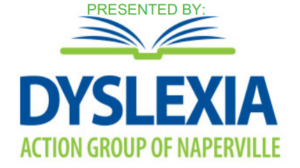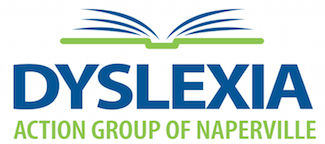Archive for the ‘ Blog’ Category
Updates to College Admission Testing – SAT, ACT, and PSAT – 2015
The new version of the PSAT will arrive in October of 2015.
It will probable be about 35 minutes longer than the 2014 version.
It will consist of sections in Evidence based reading and writing tests
A language test and math test.
Only correct answers will be scored; no penalty for incorrect choices.
There will be sub scores for each test meant to pinpoint student’s strengths and weaknesses.
In the fall of 2015 the new version of the ACT will be given.
There will be just a few changes from the present version.
Scoring will be the same 1-36
Points for correct answers only.
A new type of reading selection is comparing information from pared passages.
This type of passage has been part of the SAT.
The math section may include more questions involving statistics and probability.
There will be new supplemental scores including STEM and state assessment scores reflecting influences of common core standards.
THE BIG REVEAL will be the revised SAT in the spring of 2016.
It will include 5 long sections: writing and language, reading, 2 math sections and an optional essay.
The test, including essay, will be 3 hrs & 50 minutes.
Scoring will include evidence based reading & writing 200-800
Math 200-800
The essay will be scored separately.
On here English and writing section, students will be asked to revise and edit writing selections. Questions will cover: grammar and usage, punctuation, logical structure and rhetoric .
Math will include pre algebra through trigonometry with an emphasis on algebra.
One section will be done without calculators, 12 grid in questions and one extended thinking question.
The reading test will include four long passages and one pared passage.
Two passages may include charts and graphs; one will be a US “founding document”
The essay portion will ask students to analyze a passage and evaluate the author’s reasoning and rhetoric.
This is the information we have so far and is subject to change.
It’s best to plan early for the journey to college and remember that the journey can be exciting.
Building Confidence Through Chores
Psychologists have incorporated chores into the treatment plans for many of the children with ADHD. Chores offer a context in which children with ADHD can be successful and proud of their performance, even when their impulsiveness, inattention, or disorganization may lead to mediocre school achievement. Children and teens with ADHD and executive functioning challenges may need extra help to plan and persist with chores.
If your child has difficulty with organizing and remembering the steps to complete a task, sit down with her and create a step-by-step list of what each job involves. Be clear about the specific expectations. Do you expect your child to move the knickknacks when he dusts the living room? Do you want the top of the refrigerator cleaned in the kitchen? Laminate the list of steps so that she has a template to use each time she does the chore and so that she can check off each step as she completes it.
Does your child have difficulty with getting started on tasks? Then you will likely need to set aside a specific time each day for chores so that they become routines. Initially, you will probably need to give a warning that “chore time” is coming up and signal when it is time. You may even need to start the task with her to get her rolling.
Is it a complex, multi-step task? Then maybe it should be completed over several days so as not to be overwhelming.
If your child tends to have difficulty with accurately assessing his own work, then you will need to highlight the process of reviewing and analyzing his own work. For example, when your child announces that he has completed a task, you can instruct him to go back and “be the parent.” “Go stand in your room and look at it as if you were the parent. Would you say that it’s all cleaned up? If not, take a moment and fix it.”
Many children with ADHD also have language processing weaknesses. If that is the case for your child, offer hands-on learning when you introduce a chore. Walk her through the steps by doing the job with her at first. After that, use the “guided practice” model common in classrooms; stay nearby when she first does the job on her own so that you can guide her if she misses a step.
Finally, enjoy the help that you are receiving! It’s a win, win situation!
The Gifts of ADHD
By looking at a diagnosis of ADHD as a unique gift, rather than a deficit, would be a major shift that would help both you and your child. Work with your child’s gifts, rather than against them.
Five Gifts of ADHD:
- 1. Creativity – Gifted in imagination & original thought. Impulsivity and distractibility are required for creativity. They are useful in thinking outside the box.
Tip: Tell your child that when he/she is tempted to daydream during school, write it down and save it for a special daydreaming session at home. - 2. Attunement to nature – ADHD symptoms were relieved by time spent in nature, especially green settings.
Tip: Give him/her time in nature before beginning homework or household chores. - 3. Interpersonal intuition – Highly sensitive, attuned and connected to others.
Tip: Help your child become aware of the emotion he/she feels. Help him/her figure out whose emotions he is picking up. Help him/her communicate his/her sensitivity to the person. - 4. Energetic enthusiasm – This energy makes your child exuberant, charismatic and fun to be around. The challenge is learning to focus his/her high levels of energy to fuel productive accomplishments & achieve goals.
Tip: Knowing what your child is good at and what he/she struggles with, you can begin to channel his/her energy in productive ways. - 5. Emotional sensitivity – This increases your child’s capacity to connect with and care for others. The challenge is learning to monitor & manage these emotions as they emerge.
Tip: Help your child find positive ways to express emotions or to ask for help when needed.
Above all, stay positive! Rather than punishing unwanted behavior, focus on positive reinforcement. This is especially important for a child diagnosed with ADHD, because their behavior is not usually willful. This child likely experiences rejection and failure at school and desperately needs a safe place at home where he/she can feel accepted for who he/she is. By being patient & understanding, you will improve your relationship with your child.
EVENT: What is Dyslexia?
Topic: What is Dyslexia?
Event: Wednesday January 28th, 7:00 PM
Speaker Panel: Dr. Jennifer Zvi, Dr. Jessica Eaton, Dr. Merle Holland, Julia Nelson (Adult Dyslexic), Dr. Eileen Norton (parent)
Location: Naperville Municipal Center, 400 S. Eagle Street, Naperville, IL
RSVP for this event by emailing dagnaperville@gmail.com. Please include the names and emails of all attendees in email.
More info can be found on DAG Naperville’s Website.
Download FlyerNew Class Offering! Qigong for Kids – Grades 1st – 6th
 Try the first class for free!
Try the first class for free!
Bring your kids to WSEA Tutoring on 1/24/15 at 10am to try “Wuji for Kids”. While your kids are trying this new activity that promotes a natural alternative to medication to improve focus and attention, parents are welcome to join Camille Jones as she explains the benefits of Qigong for your kids and answers any questions.
Looking to try a new activity with your kids? Try “Wuji for Kids”. It’s a natural alternative to medication to improve focus and attention.
The Wuji for Kids class is especially designed for children that teaches a free-form style of Qigong to keep kids engaged and excited. It uses specific Qigong movements that kids draw from as they create their own form and flow. Perfect for kids ages 4 through 14!
The class promotes:
- Mental focus
- Body & environment knowledge/awareness
- Control of emotions/desires through breathing and controlled movement
Class Time: 1/24/15 at 10am. 5 Week Course Class!
Location: 300 E Gartner Rd || Naperville, Illinois 60540
Cost: Price is $150 per child (or $125 when you register with a friend or if you’re registered for Phonics is Phun as well)
The Gifts of ADHD – Five Gifts of ADHD
By looking at a diagnosis of ADHD as a unique gift, rather than a deficit, would be a major shift that would help both you and your child. Work with your child’s gifts, rather than against them.
We explore Five unique Gifts of ADHD in this video.
5 Things Parents Can Do to Set Their Kids Up for Academic Success
5 Things Parents Can Do to Set Their Kids Up for Academic Success
Whether they admit it or not, kids of all ages depend on their parents when it comes to succeeding in school. No matter the age of your children, you can help set them up for academic success by implementing some basic guidelines and routines at home. Here are 5 things you can do this school year to help your kids feel more confident and capable when it comes to their studies:
Make sure they get enough sleep.
A lack of sleep is guaranteed to impact your children’s performance in school. And it’s not just a matter of doing poorly on exams or getting low grades, they won’t feel their best mentally or physically if they’re not getting the rest they need. Sleeping gives the body an opportunity to rest and recover, but it also gives the brain a chance to process information and problem-solve. Most kids need between 8 and 10 hours of sleep.
Stick to a routine when possible.
Kids thrive when they have a steady schedule. It enables them to plan ahead and creates a sense of comfort that promotes greater mental ease. Talk to your children in advance about the plans for each day or week so that they know what to expect.
Teach kids to prepare instead of procrastinate.
Waiting until the last minute to study for an important test or complete a project creates anxiety for both children and their parents. Teach them the importance of preparing or studying in advance to minimize stress. They’ll feel ready for that exam or confident that they’ve done their best work, instead of feeling embarrassed or insecure about being unprepared.
Give them support.
It’s important that kids understand they have a support system when it comes to understanding topics that may not come naturally to them. Spend time talking about their assignments and upcoming exams, and make yourself available to review any questions they have about schoolwork. If your child needs extra help, hire a tutor to provide one-on-one guidance. Make sure your kids know they don’t need to have all the answers themselves and can always get help when they need it.
Create a separate area for schoolwork.
It is all too easy for kids to become distracted while studying or doing homework. A TV show in the background, phones ringing, and even family members talking around them are all common culprits that cause kids to lose their focus. Create a dedicated study area for your kid, free of these distractions. They’ll be able to get through their work quicker, will be more focused, and are more likely to understand what they’ve studied, as opposed to going through the motions without truly comprehending the subject matter.
While it’s no easy task, parents can not only help their kids succeed in school, but learn to embrace learning as an important and valuable part of life. By integrating schoolwork into your family’s daily routine and promoting a positive, supporting environment for completing it, you’ll fuel your children’s desire to learn.
Dusty Fox is a full-time world traveler and freelance writer who contributes to the Ivy Trainers network. Visit the Ivy Trainers website to learn more about the services they offer.
WSEA Tutoring on NCTV 17’s Business Connection
WSEA Tutoring on NCTV 17’s Business Connection
Keep a pulse on today’s business scene by watching Business Connection, Naperville’s only television business talk show! Hosted by NCTV17’s award-winning Executive Director, Liz Spencer, this 30-minute show features all types of businesses, from small pet grooming stores to major hospitals. In a free-flowing conversational interview, Liz sits down in-studio with local business leaders and entrepreneurs who share their unique story – everything from what makes their business successful, to their involvement in the community.
Happy Holidays from WSEA!
Holiday Party 2014
Dyslexia Speaking Event: Accommodations for Students with Reading Disabilities
Accommodations for Students with Reading Disabilities
Event: Wednesday November 5th 2014, 6:30pm-8:30pm
Speaker: Dr. Paige Koos. Advocate, Consultant, Counselor
Location: Naperville Public Library at 95th Street.
About the Speaker:
Dr. Paige K. Koos is a veteran educator, social worker, and administrator who is passionate about assisting parents in realizing their educational and/or emotional dreams for their children. Paige combines this passion with 20+ years of experience of working in the public schools and private counseling settings to provide the highest quality educational consultation, parent advocacy, and counseling services to her clients. Dr. Koos will be speaking in detail about the “menu” of services available to students with dyslexia and other reading disabilities. The talk will cover elementary, middle and high school students. Please feel free to email us at DAGNaperville@gmail.com in advance with questions you have for Dr. Koos. For more information about Dr. Koos, please visit http://www.yourkidsrights.com/
















